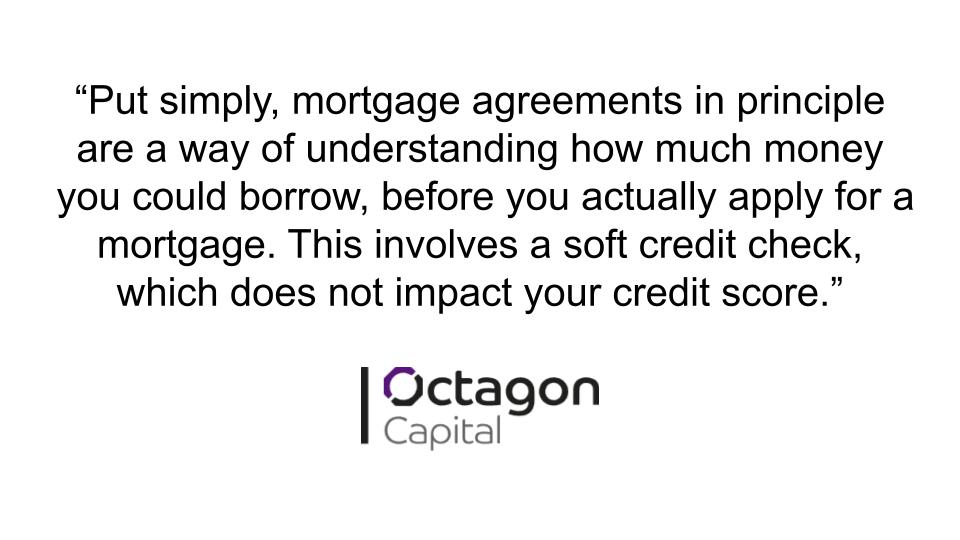Choosing to take out a mortgage is a huge decision for anyone, no matter their circumstances, and one that should never be taken lightly. As your credit rating, capital, and property are all at risk when you take out a mortgage if you fail to make your scheduled repayments, this is a decision you should never rush into.
We’ve brought together all you need to know about having a mortgage agreement in principle, including how long a mortgage in principle lasts and what happens when it expires. Carry on reading for our Octagon Capital guide to mortgages in principle:
What is a Mortgage in Principle?
Before we get into the details about how long a mortgage agreement in principle lasts, it’s important to make sure you fully understand what a mortgage in principle is, and how it differs from a standard mortgage. Mortgage agreements in principle are sometimes known as a decision in principle or a mortgage promise.
Put simply, mortgage agreements in principle are a way of understanding how much money you could borrow, before you actually apply for a mortgage. This involves a soft credit check, which does not impact your credit score. There’s also no obligation with a mortgage agreement in principle, meaning you are under no pressure to accept that specific mortgage offer from the lender.
A mortgage in principle is a written indication from a bank or building society that states how much it might be prepared to lend you for a mortgage. Much as decision in principle is not binding on your part, it also is not binding on the part of the lender – they can still refuse to offer you funds for a variety of reasons. Mortgage agreements in principle provide you with an idea of the amount of money you may be able to get as a mortgage, before you start actually applying for one.

What are the Benefits of a Mortgage in Principle Agreement?
There are several reasons why someone might choose to get a mortgage in principle, but many people choose to get a decision in principle because of the many benefits it offers, and insights it can provide you with. Some of the reasons why someone might choose to take out a mortgage agreement in principle include, but aren’t limited to:
- Mortgage amount – you get a clearer understanding of how much money you are likely to be offered as a mortgage.
- Know your limits – by knowing the amount you could get as a mortgage, you can figure out what you can actually afford to spend on a property, helping to ensure you don’t go over budget when searching and end up in debt.
- Soft credit check – a mortgage in principle does not involve a full credit check, meaning your credit score will not be impacted. This means that there is no knock-on impact on your ability to take out any other loan products in the future.

How Long Does a Mortgage in Principle Last?
A mortgage in principle typically lasts between 30 and 90 days, however this is dependent on your lender. It’s really important to double check the terms of your mortgage in principle with your lender, so you know how long it is valid for.
What Happens if a Mortgage In Principle Expires?
When a mortgage in principle expires, it should be relatively simple to get another one. This means that if you didn’t manage to find your dream home in time, you can still use a mortgage in principle going forwards, providing you re-apply. After your original decision in principle expires in 30 to 90 days, you will likely have to re-apply for a new mortgage in principle, on new terms.
Some factors that could impact how easy and quick it is to renew your decision in principle include, but aren’t limited to: changes to your income, and significant changes to the economy.
When it comes to property searching and dealing with finances, it can feel like a minefield. That’s why we’ve created this guide to mortgage agreements in principle, and how long they last. Armed with this information, you can continue your search for the perfect property, knowing exactly what you can expect to be able to afford.
You should only ever take out a mortgage – or any type of loan – if you are sure you will be able to meet the scheduled repayments. Defaulting on mortgage repayments can damage your credit score and leave you in greater financial difficulty.
